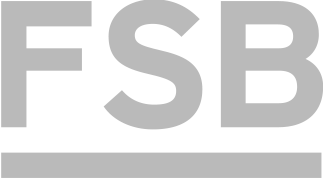International Exchange
Course details
Student Mobility > Programmes and Courses > Courses in English > Course detailsBoilers
- Teaching: Completely taught in English
- ECTS: 4
- Level: Graduate
- Semester: Summer
- Prerequisites:
- Thermodynamics I; Fluid Dynamics I
- Load:
Lectures Exercises Laboratory exercises Project laboratory Physical education excercises Field exercises Seminar Design exercises Practicum 30 0 0 0 0 0 0 15 - Course objectives:
- Introduction to boilers constructional and operational characteristics and calculation methods.
- Student responsibilities:
- Grading and evaluation of student work over the course of instruction and at a final exam:
- Methods of monitoring quality that ensure acquisition of exit competences:
- Written and oral exam. Seminars. Student" feed-back and forum on portal e-ucenje.fsb.hr (Moodle system).
- Upon successful completion of the course, students will be able to (learning outcomes):
- On successful completion of this course, a student will be able to: - identify boilers with respect to their classification by type, - analyze the individual components of the boiler and to determine its operating characteristics, - make a stoichiometric calculation of combustion of different fuels in boilers and calculate the pollutant emissions from the boiler (CO2, SO2, NOx), - choose the appropriate measures for cleaning the flue gases (particles, sulphur and nitrogen compounds, etc.), - critically assess the suitability of the boiler from the standpoint of environmental protection taking into account the emission limit values for pollutants that are released into the atmosphere, - make thermal and hydraulic calculation of the boiler and the initial calculation of the individual components of the boiler (furnace, steam superheater, air and water heaters, stack, etc.) by applying learned calculation algorithms, - calculate the boiler efficiency with different methods, - choose the boiler and recommend the best solution from the energy efficiency and environmental protection viewpoint, - conduct thermal calculation and numerical simulation of boiler plant using one of the software tools (Matlab, Excel, Visual Basic), - critically evaluate and discuss specific engineering problems related to the operation of a steam boiler and its role as the main part of the thermal power system, and propose technical solutions to the problems.
- Lectures
- 1. Boiler classification.
- 2. Types of energy. Fuels (of fossil origin and biomass/biogas/waste).
- 3. Combustion stoichiometry.
- 4. Basic constitutive elements of boiler.
- 5. Boiler heat balance.
- 6. Calculation of boiler heat balance.
- 7. Hydraulic calculation.
- 8. Boiler armature.
- 9. Stack aerodynamics.
- 10. Gas and oil burners.
- 11. Solid bed and fluidised bed combustion.
- 12. Environmental protection.
- 13. Performance measurements of boilers.
- 14. Resume.
- 15. Exam.
- Exercises
- 1. Presentation of different types of boilers.
- 2. Examples solving.
- 3. Combustion calculation.
- 4. Combustion examples solving in Excel and Visual Basic.
- 5. Construction of H-t diagram.
- 6. Boiler calculation algorithm.
- 7. Super heater calculation.
- 8. Calculation of water and air heater.
- 9. Stack calculation examples in Excel.
- 10. Furnace (combustion chamber) calculation.
- 11. Development of boiler simulation program in Excel and Visual Basic.
- 12. Calculation of pollutant emissions from boiler.
- 13. Calculation of boiler and process efficiencies.
- 14. Exercise of numerical examples for exam.
- 15.
- Compulsory literature:
- Modern Power Station Practice, Volume B - Boilers and Ancillary Plant; British Electricity Interational, London, Pergamon Press, 1991.
Bogdan, Ž.; Boilers, script, 2003. - Recommended literature:
- Schneider, D.R., Bogdan, Ž., Analysis of dual firing capabilities of retrofitted power plant, Proc. of the Energy and the Environment 2004, Energy and the Environment 2004, Opatija (2004).
Schneider, D.R., Bogdan, Ž., Modelling of SO3 formation in the flame of a heavy-oil fired furnace, Chemical and Biochemical Engineering Quarterly 17 (3) 175-181, Zagreb (2003).
Bogdan, Ž., Schneider, D.R., Duić, N., Influence of burner load distribution on furnace behavior, 4th European Conference on Industrial Furnaces and Boilers, Espinho-Porto (1997).
Duić, N., Bogdan, Ž., Schneider, D.R., Šerman, N., Afgan, N., Tube leakage effect on radiation heat flux in boiler, Proc. of the ICHMT International Symposium on Radiative Heat Transfer, ICHMT, 610-619, Kuşadasi (1995).
Schneider, D.R., Duić, N., Bogdan, Ž., Application of Monte Carlo method to the radiative heat transfer modeling in a boiler furnace (in Croatian), Proc. of the Energetska i procesna postrojenja, Energetika marketing, 259-264, Dubrovnik (1996).






